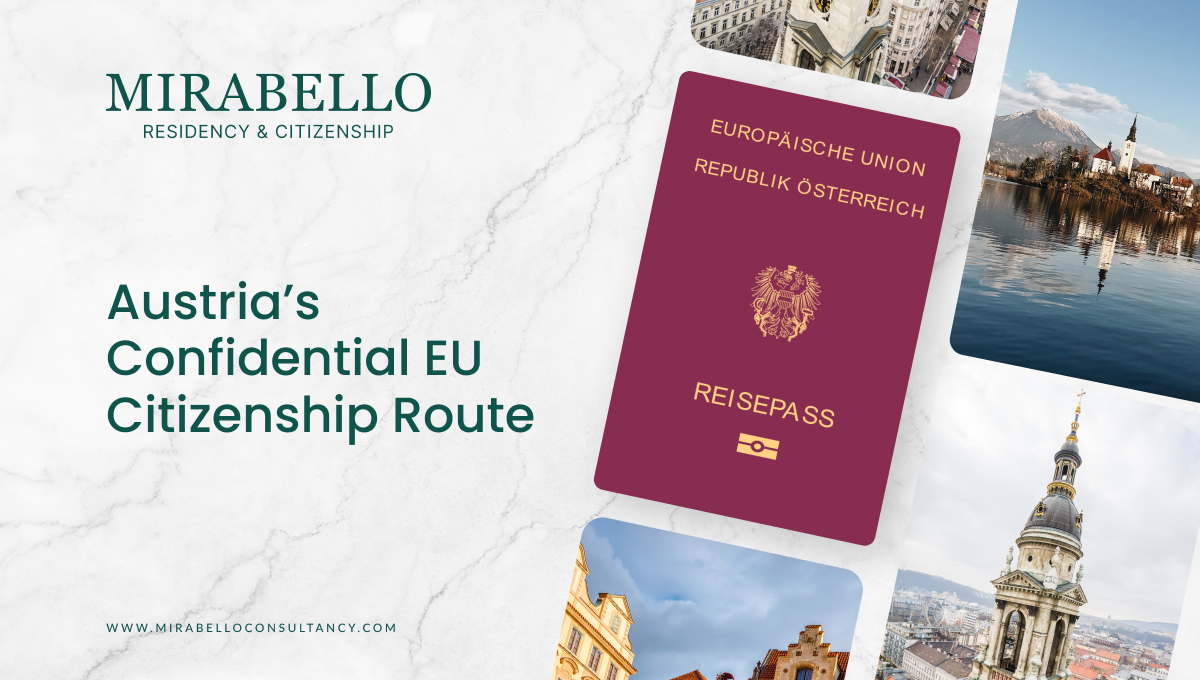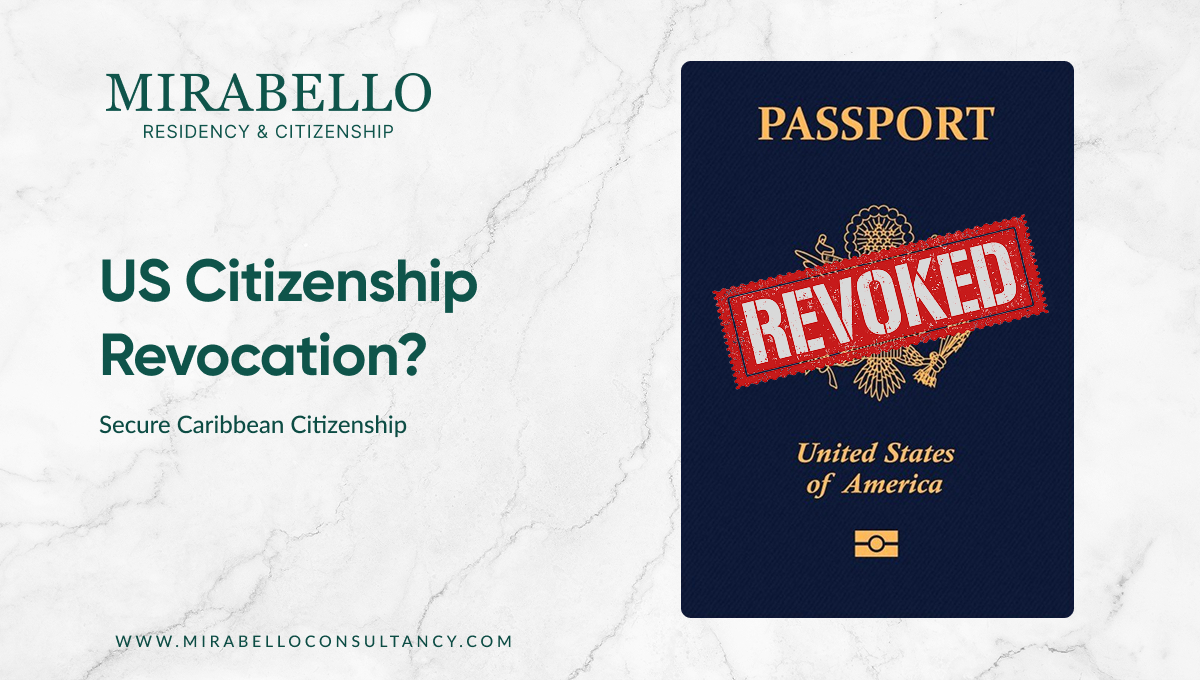
Italy’s new citizenship law, enacted in 2025, brings sweeping changes that affect millions seeking Italian nationality, especially through descent. Tighter documentation rules, longer wait times, and stricter eligibility criteria have made the process more complex and selective. For many, this raises an urgent question: what are the fastest and most reliable alternatives to Italian citizenship today? In this guide, we’ll explore the new legal framework, highlight the quickest legal routes to an Italian passport, and present strategic alternatives such as Caribbean citizenship by investment and the Dubai Golden Visa, offering flexibility, global mobility, and long-term security in a shifting legal landscape.
Key Takeaways
- Italy’s 2025 citizenship law introduces stricter eligibility and documentation requirements.
- Judicial petitions are now the only route for many applicants affected by the 1948 Rule.
- Fast-track options include marriage, EU residency, and local registration in Italy.
- Caribbean citizenship by investment offers fast, flexible second passport solutions.
- The Dubai Golden Visa provides long-term tax-free residency through real estate or professional qualifications.
- Mirabello provides strategic, end-to-end support across Italian, Caribbean, and UAE citizenship solutions.
Italian Citizenship 2025: What the New Law Means for Applicants
In 2025, Italy introduced major reforms to its citizenship laws, signaling a shift in how the country defines and grants nationality. These changes primarily affect those seeking citizenship by descent (jure sanguinis), naturalization, and residency-based pathways.
Major Legislative Updates
- Mandatory digital pre-screening: While the reform introduces digitalization initiatives, the core focus is on eligibility tightening and generational limits. Pre-application screening is being rolled out in some jurisdictions, but it is not yet universally mandatory or cited in all legal summaries.
- Standardized B1 language requirement: A B1 level of Italian proficiency is now mandatory for most naturalization routes. However, this does not universally apply to citizenship by descent. Depending on your specific legal route, language requirements might be subject to adjustment.
- Increased waiting times at consulates: Several consulates worldwide now report interview delays of 24–36 months due to backlog and tightened eligibility filters.
- Tax and criminal clearance required: Authorities now cross-check applicants’ international tax filings and criminal records. Applicants must submit a “clean” tax and criminal background from all countries of residence in the past 10 years.
- Residency naturalization period increased: For non-EU nationals, the minimum residence requirement went from 10 to 12 years, with proof of continuous legal residence and integration.
- New Generational Limit: Law 74/2025 now restricts automatic eligibility for citizenship by descent primarily to children and grandchildren of Italian citizens. Great-grandchildren and more distant descendants are generally excluded unless they meet specific exceptions or qualify through judicial appeal.
- “Genuine Link” Requirement Introduced: Applicants must also demonstrate a tangible connection to Italy beyond bloodline, such as cultural familiarity, family ties, or periods of residency. This adds a subjective layer of assessment even for seemingly valid descent-based claims.
Restrictions on Italian Citizenship by Descent: What’s Changed?
Citizenship jure sanguinis (by descent) was historically one of the easiest routes to an Italian passport. In 2025, this has become notably more difficult due to new technical, documentary, and legal criteria.
Key Legal Restrictions
- Document expiration rules: Birth, marriage, and death certificates used in the application must now be reissued within 6 months of submission, unless legalized with long-form apostilles.
- No recognition for maternal lines pre-1948: Citizenship claims through a female ancestor who gave birth before January 1, 1948 must now proceed exclusively through the judicial route. This requirement is no longer based on court interpretation alone—it has now been codified into Italian law.
- Consular jurisdiction enforcement: You must apply at the consulate covering your current legal residence. Attempts to apply in faster jurisdictions (e.g. Argentina, Uruguay) are blocked unless long-term residency there can be proven.
- Mandatory proof of continuous citizenship: You must prove each ancestor in your line never renounced Italian citizenship before the birth of the next generation.
How It Impacts You
- Applicants previously planning to apply at local town halls in Italy will now face denials unless they can prove genuine, long-term residence.
- Legal assistance is now highly recommended to handle complex descent claims and 1948 Rule judicial appeals.
- Those with partial documentation or incomplete family trees may no longer qualify under the current law.
Fastest Ways to Get an Italian Passport in 2025
While traditional routes face delays, certain legal options remain faster — especially for those with financial or residency flexibility.
Accelerated Paths Still Available:
- Marriage to an Italian citizen: 2-year wait (reduced to 1.5 years with Italian language certification). Requires cohabitation and clean criminal record.
- Residency-based naturalization (EU nationals): Only 4 years of legal residence needed.
- Special residency options for descendants: Some towns offer “residency-by-descent” fast-tracking within 6–8 months (requires physical presence and local anagrafe registration).
- Judicial application via Rome courts: For 1948 Rule cases, outcomes can be achieved within 12–18 months with the right legal team.
Practical Tips for Speed
- Use a certified genealogist to validate your claim before starting.
- Avoid consulates with >2-year backlogs (e.g., Los Angeles, São Paulo).
- Consider relocating temporarily to Italy for faster processing under local residency channels.
Can’t Qualify? Top Alternatives to Italian Citizenship
For individuals blocked by the 2025 law or facing multi-year waits, there are compelling alternatives that offer similar benefits — especially in the Caribbean and Middle East.
Why You May Need an Alternative
- You have incomplete records from Italy or your ancestral line ends before 1948 through a maternal link.
- You’re not fluent in Italian and cannot meet the B1 language requirement.
- Your timeline does not allow for multi-year processing delays.
- You want to establish global mobility, tax residency options, or business presence outside of Europe.
Alternatives That Mirror Italian Citizenship Benefits
- Caribbean citizenship: Quick approval, family eligibility, visa-free access to EU/UK.
- Dubai Golden Visa: Residency without taxation, strong financial infrastructure, and long-term security.
- Portugal, Greece, and Malta Golden Visas: EU access without full citizenship obligations.
- Latvia or Turkey passports: Regional mobility with lower investment thresholds.
Caribbean Citizenship by Investment: A Flexible Plan B for Italians
Several Caribbean nations offer fast-track second passports through investment, often within 3–6 months, making them a popular fallback option.
- Investment: $250,000 donation
- Processing Time: 4–6 months
- Visa-Free Travel: 161 countries, including Schengen Area and the UK
- Investment: $230,000 donation
- Processing Time: 4–5 months
- Visa-Free Travel: 150 countries, including Schengen Area and the UK
- Investment: $200,000 donation
- Processing Time: 3–4 months
- Visa-Free Travel: Schengen Area, China, and Hong Kong
- Investment: $245,000 donation
- Processing Time: 4–5 months
- Visa-Free Travel: 145 countries, including Schengen Area, UK, and China
- Investment: $240,000 donation
- Processing Time: 3–5 months
- Visa-Free Travel: 146 countries, including Schengen Area and the UK
Benefits for Italian Nationals
- Ability to legally renounce Italian tax residency by relocating.
- Access to UK and Schengen areas without visas.
- Quick, straightforward application — no residency or language requirement.
- Families (spouse, dependent children, sometimes parents) included in one application.
Considerations
- Citizenship is lifetime and irrevocable unless gained fraudulently.
- Real estate investment options are available, offering ROI over time.
- Not all countries allow dual nationality — check compatibility with Italian law before proceeding.
Dubai Golden Visa Requirements for Italians in 2025
The UAE’s Golden Visa is a long-term residency program designed to attract investors, entrepreneurs, and skilled professionals. It’s not a passport, but it offers excellent benefits.
Eligibility Criteria for Italians
Real Estate Investors:
- Minimum AED 2 million (~€500,000) property investment in freehold zones.
- Property must be fully owned or 50% paid with mortgage in UAE banks.
Entrepreneurs & Business Owners:
- Valid trade license and business capital of AED 500,000+.
- Innovation-based startups or tech companies get priority.
Specialist Talent:
- Doctors, engineers, researchers, and PhDs with employment offers or publications.
Remote Workers & Freelancers:
- Income of at least $5,000/month proven by contracts and bank statements.
Benefits
- Renewable 5- or 10-year residency.
- No personal income tax or capital gains tax.
- Access to international banking, top-tier schools, and private healthcare.
- Easy family sponsorship and visa renewal processes.
Which Second Passport Strategy Is Right for You?
For many applicants, it’s not just about heritage, it’s about lifestyle, mobility, and risk management. Here’s how the main options stack up:
Italian Citizenship
Pros:
- EU mobility, healthcare, and education access
- No language or residence requirement (if descent applies)
- Strong passport (visa-free to 190+ countries)
Cons:
- Long processing times (2–6 years)
- Complex documentation requirements
- Tax exposure if residing in Italy
Caribbean Citizenship
Pros:
- Fast processing (3–6 months)
- Tax-friendly regimes
- Dual citizenship allowed in most cases
- Simple application process
Cons:
- No EU working/residency rights
- Annual fees or donation requirement
- Limited diplomatic protection abroad
Use Case Match
- If your goal is ancestral pride and EU mobility – Italian Citizenship is the ideal choice.
- If you prioritize global mobility and fast access – Caribbean Citizenship offers the quickest path with strong visa-free benefits.
- If your focus is on low taxes and business presence – Dubai Golden Visa provides tax-free residency and corporate advantages.
- If you’re a digital nomad or manage crypto assets - UAE or St. Kitts & Nevis are strategic choices with flexibility and financial freedom.
Which Second Passport Strategy Is Right for You?
The answer depends on your:
- Citizenship eligibility under the new Italian law.
- Timeline — how urgently do you need a second passport?
- Lifestyle and tax planning goals.
- Family size and mobility needs.
- Investment capacity and asset diversification goals.
How Mirabello Helps
At Mirabello, we provide:
- In-depth eligibility diagnostics for Italian citizenship.
- Full-service document collection and legal representation.
- Expert guidance on Caribbean citizenship by investment options.
- Tailored planning for the Dubai Golden Visa, including business incorporation.
- Strategic roadmaps for clients exploring multi-jurisdiction citizenship portfolios.
As Italian citizenship becomes more restricted, a proactive and well-planned second passport strategy is no longer a luxury — it’s a necessity for global citizens. Whether your goal is reconnecting with Italian heritage, protecting your assets, or unlocking international mobility, Mirabello is here to design a future-proof citizenship plan for you.
FAQ
Italy’s 2025 law introduces stricter descent rules, a generational limit (children and grandchildren only), a “genuine link” requirement, and longer wait times for naturalization
Italy’s 2025 law introduces stricter descent rules, a generational limit (children and grandchildren only), a “genuine link” requirement, and longer wait times for naturalization
Italy’s 2025 law introduces stricter descent rules, a generational limit (children and grandchildren only), a “genuine link” requirement, and longer wait times for naturalization
Italy’s 2025 law introduces stricter descent rules, a generational limit (children and grandchildren only), a “genuine link” requirement, and longer wait times for naturalization
Italy’s 2025 law introduces stricter descent rules, a generational limit (children and grandchildren only), a “genuine link” requirement, and longer wait times for naturalization
Law 74/2025 is the reform that redefines Italian citizenship eligibility, especially by descent, limiting access to direct descendants and enforcing stronger proof of connection to Italy.
Law 74/2025 is the reform that redefines Italian citizenship eligibility, especially by descent, limiting access to direct descendants and enforcing stronger proof of connection to Italy.
Law 74/2025 is the reform that redefines Italian citizenship eligibility, especially by descent, limiting access to direct descendants and enforcing stronger proof of connection to Italy.
As of March 2025, automatic citizenship is limited to children and grandchildren of Italian citizens. Great-grandchildren must qualify through exceptions or court. Maternal-line claims pre-1948 now require a judicial petition.
As of March 2025, automatic citizenship is limited to children and grandchildren of Italian citizens. Great-grandchildren must qualify through exceptions or court. Maternal-line claims pre-1948 now require a judicial petition.
As of March 2025, automatic citizenship is limited to children and grandchildren of Italian citizens. Great-grandchildren must qualify through exceptions or court. Maternal-line claims pre-1948 now require a judicial petition.
Visa requirements depend on nationality. EU citizens do not need a visa; non-EU nationals must still follow Schengen visa rules. No major visa policy changes have been announced for 2025.
Visa requirements depend on nationality. EU citizens do not need a visa; non-EU nationals must still follow Schengen visa rules. No major visa policy changes have been announced for 2025.
Visa requirements depend on nationality. EU citizens do not need a visa; non-EU nationals must still follow Schengen visa rules. No major visa policy changes have been announced for 2025.





